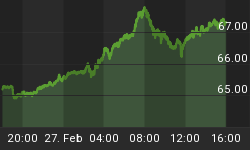One would think that great health coverage would be a basic perk of working for an insurance company, but those days are apparently over. Investment News reports that John Hancock has not only eliminated health insurance for its agents, it has converted those agents from employees to commission-based independent contractors.
John Hancock B-D to terminate health and insurance benefits
Registered representatives at Signator Investors Inc., John Hancock's broker-dealer, received some dismaying news on Tuesday: The firm will be terminating its health and insurance benefits and will freeze its retirement benefits plan at the end of the year.
Effective Jan. 1, 2015, the firm will change its compensation structure "to one more representative of those commonly offered in the industry as a whole," according to an e-mail confirmation from Melissa Berczuk, a spokeswoman for John Hancock Financial Services Inc.
Signator has been migrating from a pure career agency to a model that's more based on that of an independent broker-dealer, Ms. Berczuk said.
John Hancock in 2009 overhauled its business model to give its career reps the option of going independent. The reps also had the option of maintaining a traditional relationship with John Hancock as statutory employees, which would give them support from the company, as well as health and retirement benefits subsidized by the company.
The new notices to reps and employees, obtained by InvestmentNews, include a breakdown of options for health and insurance benefits once the plan terminates at the end of the year.
Signator suggests that reps and staffers look into the public insurance exchanges, as well as health coverage bought through a private channel such as an insurance agent. There's also the possibility of going without coverage. However, the firm warns that "as a result of the Affordable Care Act, an individual mandate applies for medical coverage and a penalty may apply if you do not have medical insurance." Those who were in the health plan will get access to resources to help them weigh their options.
COBRA coverage, which allows individuals to continue the benefits they received at work at a higher cost, won't be available to affected reps and staff because termination of a health benefits plan isn't a COBRA-qualifying event, according to the notice.
Basic and supplemental group life insurance coverage will be discontinued, but reps and staffers can obtain an individual policy on a guaranteed issue basis from MetLife Inc., the provider, as of Dec. 31, according to the notice.
As for Signator's 401(k) plan, workers won't be able to make contributions once the plan has frozen. Auto-rebalancing and fund changes will be allowed to continue, however. Loans from the 401(k) accounts won't be permitted on or after Jan. 1, according to the notice.
Meanwhile, those who are in the pension plan will stop receiving pay credits on Dec. 31, but they will continue to earn interest credits until they begin receiving benefits, according to the notice.
The pension participants' grandfathered status will not be affected by the plan freeze. As long as these participants maintain their current contract or continue to be employed by the same agency, they will continue earning credit toward the unreduced benefit, according to the notice.
The change will be a shock to the system for reps. "Those two items [health insurance coverage and retirement plans] are a key reason that keeps people in their seats; they don't go independent because of it," said recruiter Jodie Papike, executive vice president at Cross-Search Inc. "If they take that away, it's a really big deal for a lot of those folks."
Some thoughts
Companies of every kind are closing down their in-house insurance programs and migrating their workers to the new government-managed exchanges. But when an insurance company does this it's a bit more notable, kind of like a Pizza Hut telling its workers to get dinner at the corner grocery store. You'd think that if a company makes a given product, the marginal cost of providing that product to employees would be pretty low. But apparently not.
In any event, the bigger trend is what's really interesting: Formerly-secure jobs with good benefits are being replaced by less secure jobs in which workers have to manage their own health care and retirement savings. Both kinds of jobs count as "employment" in government statistics, which means the official numbers are overstating the benefits to the average person of recent hiring increases.
In fact, most of the new jobs being created are some combination of 1) part-time work, 2) service industry work that pays far less than manufacturing or symbol manipulation, or 3) independent contractor positions like the above that both pay less and are far less secure than the jobs they replace.
The result: a nation of workers who make less than they used to, have to cover big expenses like insurance and retirement savings on their own, and can be unemployed virtually overnight with no severance or other consideration from their "employer."
Life, in short, is getting a lot harder for millions of people and much of it is happening under the radar, hidden by the government, unreported in the media and unappreciated by those not directly affected.















